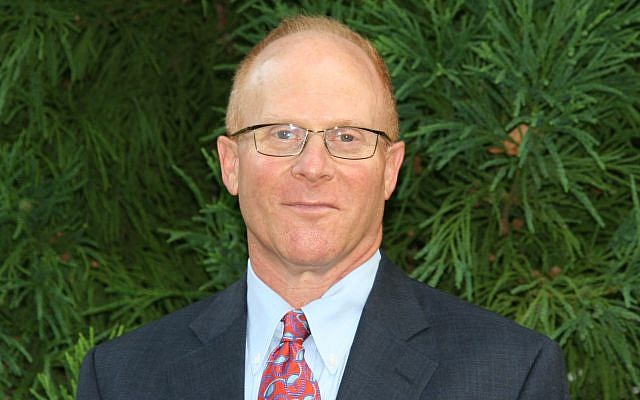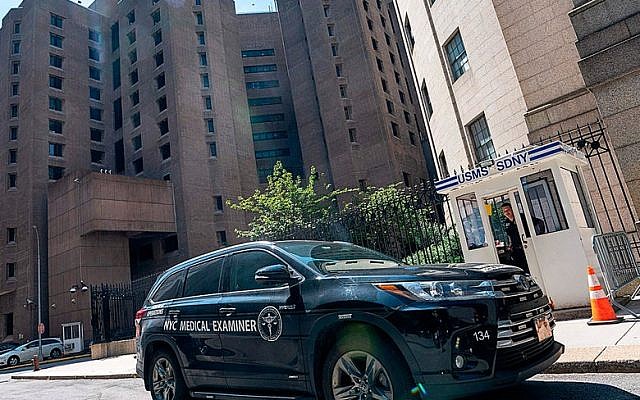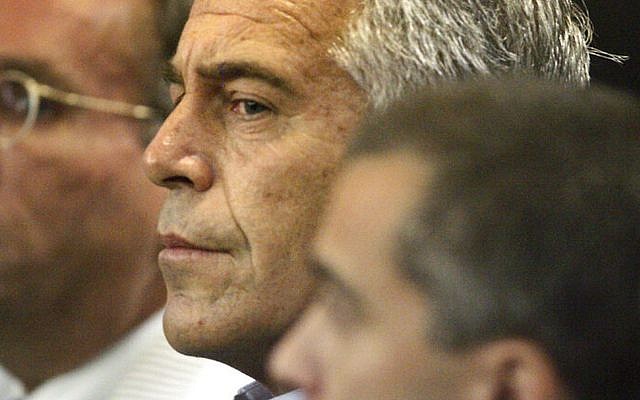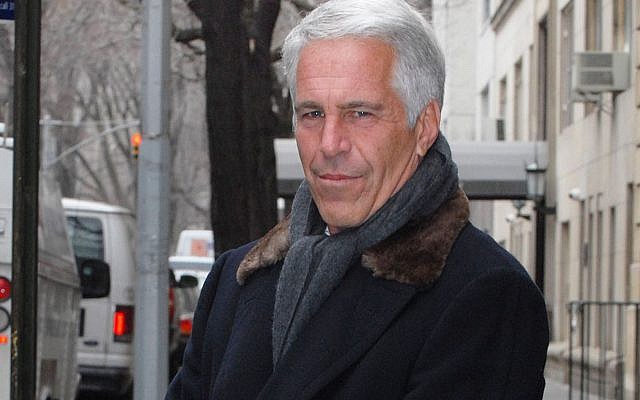Jeffrey Epstein Consulted Atlanta Attorney Days Before Death
Epstein asked Atlanta resident and criminal defense attorney David Schoen to take over as "quarterback" of his legal team.
Dave Schechter is a veteran journalist whose career includes writing and producing reports from Israel and elsewhere in the Middle East.
Days before his death, Jeffrey Epstein met with Atlanta resident and criminal defense attorney David Schoen to discuss the ins-and-outs of his federal sex-trafficking case.
Based on the tone of their five-hour conversation, Schoen is skeptical about the circumstances of Epstein’s death. “I don’t believe it was suicide. … I think someone killed him. I don’t like to speculate. I’m not a conspiracy theorist,” he told the Atlanta Jewish Times in an interview Sunday.
“It was just the two of us in a room, though other people came and went” during their Aug. 1 meeting at the Metropolitan Correctional Center in New York, Schoen said. “We talked about the future, all sorts of plans for the case, things he hadn’t thought about before. “He was very upbeat, eager to go. I’ve heard from other people who told me how much that meeting meant to him.”

Epstein, 66, was found dead in his cell at the MCC at about 6:30 am. Saturday, Aug. 10, from an apparent suicide by hanging. The New York City medical examiner’s office performed an autopsy on Sunday, Aug. 11. No finding has been announced.
Schoen said that in the days before Epstein’s death, he was mulling a request by Epstein to become the well-connected financier’s lead attorney.
“He had asked me to take over his case, to quarterback the team. He has a bunch of lawyers, but it’s a bit dysfunctional,” Schoen said. “I agreed to do it. I was supposed to go up there this past Friday to meet with the lawyers. I needed to see if the other members of the team were willing to do this. … The last thing I heard was that they accepted me, but I needed to know what that meant,” Schoen said.
That Aug. 9 meeting was canceled, but Schoen had planned to fly to New York this week.
Epstein had pleaded not guilty – and was facing up to 45 years in prison if convicted – to a single count each of sex trafficking and conspiracy, as outlined in an indictment unsealed July 8 in U.S. District Court for the Southern District of New York. He had been arrested July 6 at a New Jersey airport when he returned aboard his private plane from Paris. He had pleaded not guilty to the charges. At a July 18 court hearing, Epstein was denied bail. A trial date was expected to be set for 2020.
The New York indictment alleged that: “over the course of many years, Jeffrey Epstein, the defendant, sexually exploited and abused dozens of minor girls at his homes in Manhattan, New York, and Palm Beach, Florida, among other locations.” The indictment said that some of the girls were as young as 14-years-old.
The indictment also alleged that: “In particular, from at least in or about 2002, up to and including at least in or about 2005, JEFFREY EPSTEIN, the defendant, enticed and recruited, and caused to be enticed and recruited, minor girls … to engage in sex acts with him, after which he would give the victims hundreds of dollars in cash. Moreover, and in order to maintain and increase his supply of victims, EPSTEIN also paid certain of his victims to recruit additional girls to be similarly abused by EPSTEIN.”
Schoen said that during his Aug. 1 meeting with Epstein, “We were interrupted by the jail psychiatrist,” who said she needed to interview Epstein “pursuant to suicide protocol.” Schoen said that he and Epstein “ended up joking about it, so when they say he was taken off suicide watch, I’m not sure what it was originally.”
“For anything to have happened to him at the MCC shows a deliberate indifference to an unconstitutional degree by the Bureau of Prisons,” Schoen said. “If it was suicide, it is unconscionable that he was not under suicide watch. He would have been under surveillance. If it was murder, it was absolutely outrageous.”
U.S. Attorney General William Barr has directed the Inspector General of the Department of Justice to investigate Epstein’s death. In a statement, Barr said, “Mr. Epstein’s death raises serious questions that must be answered. In addition to the F.B.I.’s investigation, I have consulted with the Inspector General, who is opening an investigation into the circumstances of Mr. Epstein’s death.”
“I am happy that the Attorney General has referred the case to the Inspector General. I certainly will cooperate with the Inspector General in all regards,” Schoen said.
Schoen noted media reports that Epstein had attempted to commit suicide on July 23. “That was not a suicide attempt,” Schoen said. “It involved another inmate.”
The New York Times reported that Epstein “was lying unconscious in a cell he shared with another inmate, with bruises on his neck. Law enforcement officials at the time said his injuries were not serious, but the incident was investigated as a possible suicide.”

The Times, citing its source as “a person familiar with his detention,” reported that following that incident Epstein “was placed on suicide watch and received daily psychiatric evaluations.”
The Times reported that on July 29, Epstein “was taken off the watch for reasons that remained unclear.”
“One federal prison official with knowledge of the incident confirmed Mr. Epstein had been taken off suicide watch recently and was being held alone in a cell in a special housing unit. The official, who spoke on the condition of anonymity for fear of being fired, said guards found Mr. Epstein in an otherwise empty cell during morning rounds. He had hanged himself and he appeared to be dead,” The Times reported.
Schoen said that he became acquainted with Epstein about 11 years ago, when the financier sought his advice. “Periodically, over the years, he’s asked me a question or two. Over the past year, increasingly over the past six months, he turned to me for advice,” Schoen said, adding that Epstein wanted to be billed for that service, but he declined because, “I wasn’t sure where the relationship was going.”
Epstein “had me reviewing some of the submissions” made by his legal team, Schoen said. “The word was that from him and his inner circle, he trusted me.”
Schoen said that he went to New York this past spring, probably in April or May, and met with Epstein at his home “to discuss some of his legal affairs.”
Schoen criticized the handling of Epstein’s case, citing “outrageous disclosures, that you would not see in any case.”
“Certainly the government has gone, and the prosecutors in the Southern District of New York have gone well beyond what they should have said. The presumption of innocence in this case has been thrown out the window, by the judge and the prosecutors. I think the judge bears some responsibility for his death. The judge found him to be a danger to the community and a flight risk, and he was neither,” Schoen said.

Schoen said that Epstein “had a very firm and onerous agreement [from 2008 with federal prosecutors] in the Southern District of Florida. Prosecutors in that office and up to the number two in the Justice Department were convinced they didn’t have a case, so they signed a deal that had him going to jail. He had to agree not to contest civil cases against him. He paid out millions of dollars to these accusers.”
Schoen said Epstein paid “simply to resolve this whole chapter and put everything behind him.”
Epstein may have “had very peculiar tastes with women,” Schoen said, but “I do not believe he was guilty of the charges brought against him by the Southern District of New York, I believe those charges should have been dismissed and barred by the agreement in the Southern District of Florida.”
Under the Florida deal, by which he avoided federal prosecution, Epstein pleaded guilty to two prostitution charges in state court (for which he served 13 months at a Palm Beach jail and was permitted to leave six days a week for work) and to register as a sex offender.
On Aug. 9, thousands of pages of documents detailing Epstein’s alleged activities were released as part of a civil suit that included allegations of minors providing sexual services to prominent friends of Epstein from the worlds of politics and business.
“Everybody that knew him and was a friend of his feels that what happened was a tragedy,” Schoen said. “I’ve read these articles that say the accusers feel cheated [by Epstein’s death]. He never got his day in court. He never got to answer the charges. That’s just not the American way. By all accounts, under the Constitution, he was presumed innocent under the law, and no one should ever forget that.”
“To me the most important reason I’m part of this case, the reason I agreed to take it is that I’ve spent my whole career representing people attacked or pilloried in the system. In this case, to the greatest extent I’ve ever seen, the presumption of innocence was dismissed in the media and the judicial system. I find that offensive. We all lose when the presumption of innocence becomes illusory.”
Schoen, who is an Orthodox Jew, discussed their common faith with Epstein. “We spoke about it a little bit. He was not observant. He was very proud of being Jewish,” Schoen said.
Asked what action, if any, he might take now that Epstein is dead, Schoen said, “I can’t comment on that one way or the other.”




comments